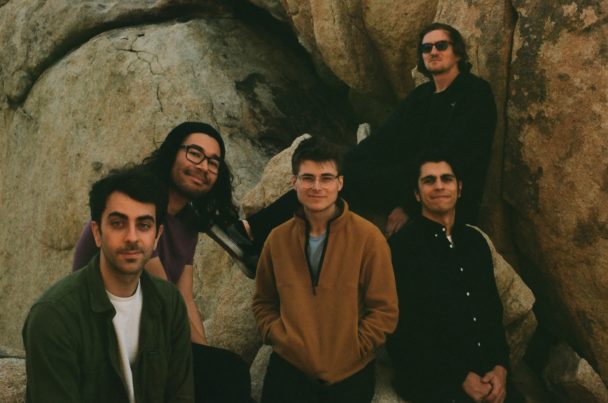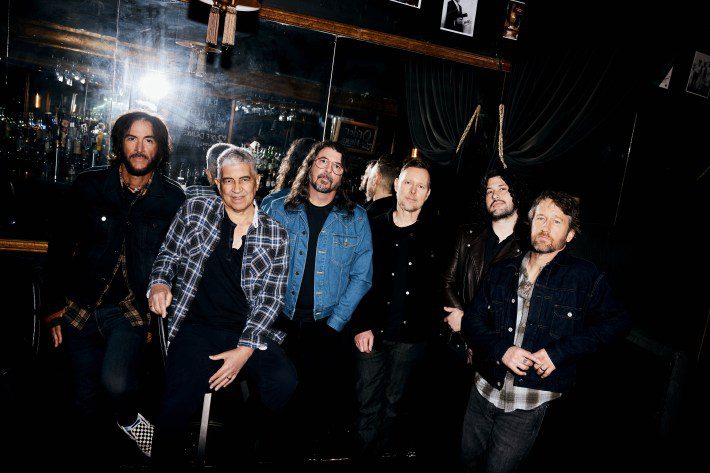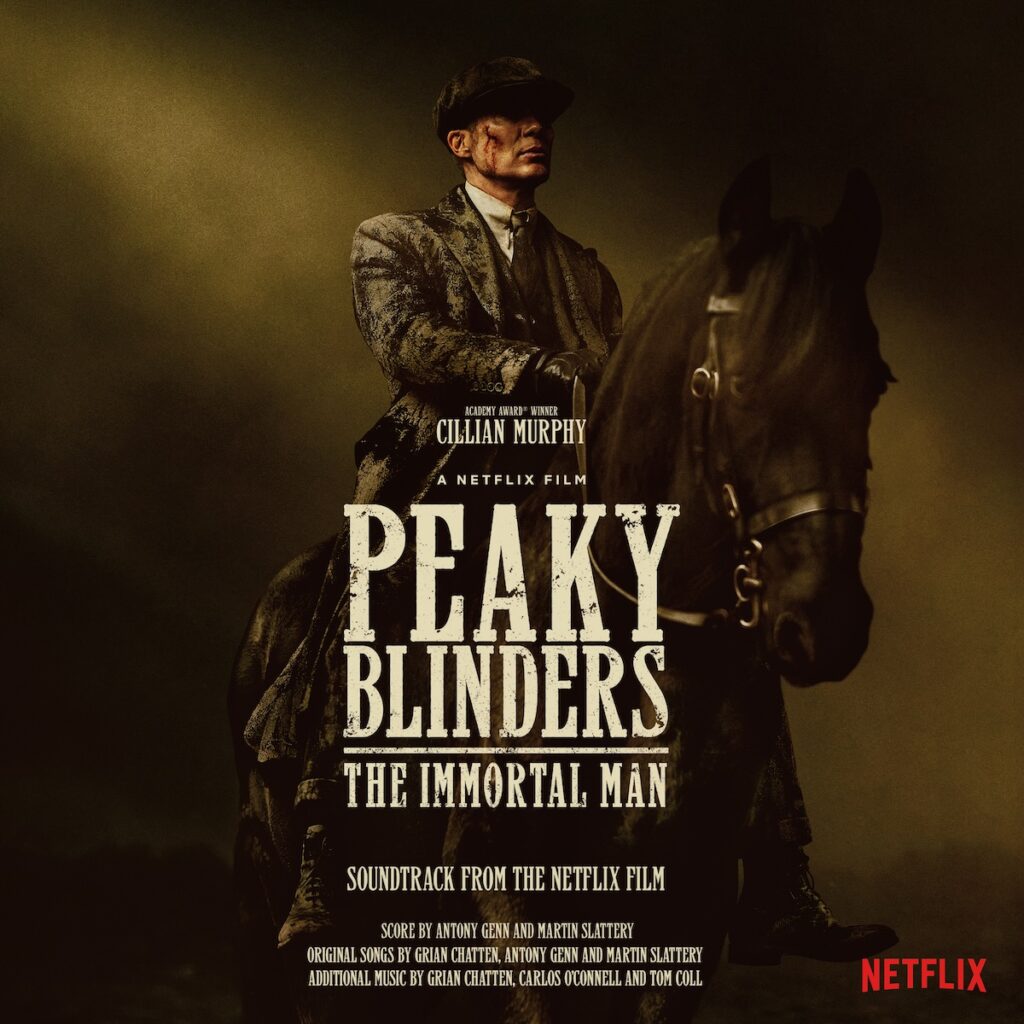Kelley Bader delivers the first words of I’m Glad It’s You’s new album looking out from the back of an ambulance, reliving the most painful day of his life. Almost certainly the luckiest day of his life as well. On July 5, 2017, Bader was at the wheel of the band’s van when it rolled over outside of Barstow, California; the members of I’m Glad It’s You survived with minor injuries. Chris Avis did not.
“The joy and grief covered up by the guilt in between/ So when it all comes out, it’s ‘How come him and why not me?’” Bader sighs at the end of “Lost My Voice.” It’s the first song he wrote after the accident and the most devastatingly beautiful song on Every Sun, Every Moon, an album almost entirely composed of devastatingly beautiful songs about Avis’ tragic death at the age of 31. Avis was a beloved special education teacher and youth basketball coach in Bakersfield, a documentarian of SoCal’s punk scene through Cavis Tapes and a mentor for I’m Glad It’s You. “Chris was literally our coach,” Bader says. “I would text him nonstop and every piece of advice he gave was, ‘Well, Touche Amore would do this.’”
To a similar degree, their approach to Every Sun, Every Moon was largely based on “What would Chris Avis have wanted?” — not just in its expansive sound, but whether it should exist in the first place. I’m Glad It’s You do sound like a band aspiring to a Touche Amore level of success (if not sound) on Every Sun, Every Moon, bearing a common ambition for modest DIY emo bands making their second album: Expand beyond the self-imposed sonic boundaries of their DIY scene, attempt a conscientious leap from good to great. Lead singles “Big Sound” and “Myths” introduced the record’s primary modes of glimmering, KROQ-aspirant power-pop and stately Britpop balladry. The mesmeric third preview “Silver Cord,” out today, falls somewhere in between.
Bader will admit that working in such magisterial, if familiar, styles can scan as exponential growth only because he’s been “living under a rock for most of my musical life.” I’m Glad It’s You are almost certainly the most notable indie rock band to ever emerge from the quiet Inland Empire suburb of Redlands, but still have a lower profile than a handful of Christian metalcore bands he knows personally (“It’s a dramatic genre and we don’t have a lot of excitement or drama out here”). While the curtain-raising piano intro, telltale Mellotron strains in “Death Is Close” and “Champagne Supernova”-like build of “Myths” accurately indicate Bader’s personal pivot towards Britpop, he comes to realize during our phone conversation that his definition of the genre is simply the most popular British rock artists of all time — David Bowie, Queen, Led Zeppelin, even the Beatles (“I’m a late bloomer, so it was ‘Let’s start with the ones that everyone agrees on and move from there.’”).
Though expanded to a solid quintet, Bader rules I’m Glad It’s You as a benevolent autocrat. He overruled his bandmates’ desire to record locally in Southern California when the opportunity arose to put in a week of 16-hour workdays with J. Robbins, the Jawbox/Burning Airlines frontman behind the boards of a veritable Greatest Emo-Adjacent Albums list from 1995-2005: Do You Know Who You Are?, Searching For A Former Clarity, Four Cornered Night, Emergency & I, Frame And Canvas. Most importantly, “He’s the Promise Ring guy,” Bader boasts. “He did Nothing Feels Good, that’s who I want to record with.” Ironically, with its Britpop flourishes, downbeat, floral folk and self-incriminating lyrics about the process of songwriting, Every Sun, Every Moon most immediately recalls the Promise Ring album that J. Robbins didn’t produce, their mournful and terribly misunderstood swan song Wood/Water.
While personal tragedy will forever make artists reconsider their purpose and privilege, Every Sun, Every Moon is subject to an additional moral calculus. It’s not just about whether putting out an indie rock record fixated entirely on death is appropriate in the midst of a global pandemic, but also having the conversation about whether doing so is sensible. It might seem crass to consider economic viability, but like most bands for whom music is not a primary source of income, I’m Glad It’s You work in fields that are accommodating to erratic touring schedules and are widely considered inessential during the COVID-19 quarantine: Bader split time between a coffee shop and a substitute teaching position. Keyboardist Robi Brown is an aide in special education classes. Bassist TJ Moneymaker is a UC Irvine School of Law student defying his name with aspirations as a public defender, a role that tends to attract idealists who don’t mind the long hours, often hostile clients, and relatively low pay (making it a fairly smooth transition from “indie rock musician”).
Even if some artists are better suited to give themselves completely to an online music scene, no one really knows how to make sense of any of the seemingly contradictory trends; more people are staying at home and spending time on their phones and computers, but music streaming on Spotify has significantly decreased. With all of the big names (and upper-middle class indie types) pushing back their release dates, it’s possible that two decades worth of poptimist drift could be reversed, shifting focus back to smaller acts less beholden to large-scale rollouts. But bands like I’m Glad It’s You rely on touring and merch to build on critical and Twitterverse success, and you can ask Dogleg whether the latter is good enough on its own.
Bader surmises that our pervasive sense of mortality and anxiety might make people more receptive to a heavy-hearted album like Every Sun, Every Moon, even though he’s gravitated towards David Bowie and Prince largely because they’re a tonic at a time when he’s experiencing a persistent, low-level depression. “When the quarantine was first announced, I was like, alright, time to write some songs, be productive, make use of this time,” Bader recalls. “After the first three days, it hit me like, ‘This is bad and it’s gonna keep going on for a while.’ Honestly, it tanked all my motivation.”
Though I’m Glad It’s You briefly considered shelving Every Sun, Every Moon for the possibility of a less fraught social environment, Bader took solace in what celebrated author and longtime I’m Glad It’s You fan Hanif Abdurraqib wrote an essay accompanying the announcement of Every Sun, Every Moon in his singularly heartfelt style: “Joy can be flimsy if a person doesn’t have to fight for it. If you’re not arriving at the feet of joy exhausted and angry, shouting or weeping…I hope this is an album that drags people a little bit closer to whatever their joy might look like.” Bader also put himself back in the ambulance on that fateful July day, still reeling from the shock and survivor’s guilt, when seemingly everyone in his life – friends, family, even paramedics — felt obligated to roleplay as a therapist. “I don’t think anyone was trying to put me on a quest,” he muses. “I think they were just saying that if you’re a creative person, writing about it is going to help you get through it. The effect was that you need to honor your friend’s memory because that’s what he would’ve wanted.”
STEREOGUM: When I’ve spoken to bands who have endured a van accident on tour, they always mention a period of time where getting back on the road felt inconceivable. Was there ever a discussion within the band about whether or not to continue?
KELLEY BADER: I’ve tried pretty hard to make [I’m Glad It’s You] a band effort, but it’s been mostly me most of the time. I did one year of just solo touring and the next year with fill-ins. We didn’t have a conversation about stopping, there was this understated thing that it was obviously going to keep going, but that we were gonna wait until it felt right. I was definitely thinking about what I need to do with this, how to make this right or pay our respects and honor Chris. When I think about it now, it feels fucked up in a way. I wouldn’t have told someone in this position you need to do something. I was feeling really guilty about it, so what I internalized was that people expect you to do this thing to kinda fix it and they expect you to keep the band going to make it right in a way.
STEREOGUM: At what point during the writing process did it become clear that Every Sun, Every Moon was going to be a full-on concept record about the accident?
BADER: I kinda knew from the start that the album was gonna be all about [the accident]. I had a few songs written prior that I was gonna do something else with, I wrote the music for “Big Sound” and “Myths” in 2017. I wanted to work on a concept album and change our sound a lot, but after the accident, I didn’t know if I could keep using [those instrumentals] because the music didn’t sound like it would lend itself to the subject. But I started writing lyrics to “Big Sound” after “Lost My Voice,” and while the music is happy and upbeat and has a welcoming tempo, I thought if I try to write about this anyway, the juxtaposition of the tone and the content could do something cool. The concept started appearing through the album of mourning change and embracing change and the process that is happening to me. “Big Sound” was the first time I thought, “we’re just gonna go for it, this album is gonna try to talk about it in a way that’s not just confessional.”
STEREOGUM: In the midst of changing the sound and scope of I’m Glad It’s You, there are a couple of obvious callbacks to previous songs: “Big Sound” repurposes the first line of “Curbside,” “The Things I Never Said” follows the previous album The Things I Never Say.
BADER: Those were obviously hyper-intentional because the album is directly related to the band and the band’s experiences, so I wanted to recontextualize or retrospectively bring what we already made into a new light under the new circumstances. It was a way to reflect and translate what we used to talk about in a new way, so repurposing the first line of “Curbside” for me was a way to tell people “we’re not the same, we can’t ever really be the same, but this is where we come from.” As for “The Things I Never Said,” it was the irony of writing a whole album of wanting to express yourself or connect with the world around you more and feeling regret because you don’t fully accomplish that. I felt like I wanted to get off my chest.
STEREOGUM: How did J. Robbins become involved with the album?
BADER: Joey [Cahill, owner of 6131 Records] just called us and said, “We got this guy J. Robbins, I don’t know if you’ve heard of him.” And I’m like, “Dude, I’ve heard of J. Robbins.” [laughs] That was it, I’ll do anything to make that happen. There were a couple of people in the band who asked, “Can’t we just stay in LA, there’s infinity people who could make an album.” And I’m thinking, “I don’t think you get it, dude.”
STEREOGUM: What about Hanif? Having an author of his stature, especially one who’s written so eloquently about emo, do the album’s one sheet feels almost as impactful from a promotional standpoint as having J. Robbins produce.
BADER: Sean [Rhorer, label manager of 6131 Records] knows Hanif or has seen him perform spoken word, and so he sent me his website, saying “this guy wants to write about your album, here’s all his works, he says he likes ‘June.’” I read his stuff and…this is fucking crazy, this guy likes “June”? How!?! I was so blown away by his writing, I was over the moon, this super-interesting super-talented guy would be willing to write about it. I thought he was just gonna do it very straightforward, “This is what happened, this is the band,” but when I read what he wrote, it made me cry. It was just beautiful and poetic, but still prose.
STEREOGUM: Was there any point during the recording where you second-guessed writing about something so personal and tragic?
BADER: While recording it, definitely — being in the studio and singing the songs, take after take, was a lot more rough than performing it. When I’m performing, there’s so many nerves, you’re playing and singing and hitting the notes and firing away, my mind is occupied by so many things that it’s not really striking me. But in the studio, it was exhausting, it was not as easy as I wish it was.
STEREOGUM: The shift towards livestreaming makes sense in the current climate, but I never thought I’d actually watch some of my favorite bands do live Reddit AMA “festivals” or play Sega Bass Fishing on Twitch. Does seeing that kind of hustle from your peers make you feel pressure to create similar content in lieu of touring?
BADER: I haven’t written much since we finished recording. It was such an intense time and it took a lot out of me, so I wanted some space from songwriting for a minute. But then COVID-19 hit and I thought, “This is where I gotta write.” I felt a weird amount of pressure at first, I did a live set and it was kinda cool because I thought we could do this for a while and interact with people in a more intimate way. Even though it’s on the internet, it felt a little bit more direct. But I was so much more nervous than doing a [regular] show. You can’t see anybody, but you know people are watching you, you’re aware that there’s a bunch of people looking at you in your house, in your room, trying to make your songs not sound bad by yourself. But you can’t read the room: “What are people thinking right now, is this stupid?” For my set, my parents and a bunch of my friends were in there, just talking to each other, it just made me think, “This is weird, I should just stop and call some friends.”
STEREOGUM: We’re already starting to see albums from bigger artists getting pushed back due to the quarantine, but it seems likely that they’ll be able to resume touring and promoting their music if and when this subsides, while up-and-coming bands are expressing concern about getting squeezed out of venues and coverage. What considerations do a band of I’m Glad It’s You’s stature have to take into account?
BADER: I was trying to think of different release strategies — people seem to be at home on the internet a lot, so what if we did this thing where we just started releasing this album one song at a time for 10 weeks, so there’s this prolonged period of new content. We’re trying to figure out how to get this thing out there without people totally overlooking it, there’s obviously other things going on in their lives. But at the end of the day, if this was a different album, if the subject matter was different, we’d probably wait. But even if there is a chance of the album really not having a chance to breathe for a while, we felt like if anybody did care, if they like I’m Glad It’s You already, the album could potentially come at a good time for some people. The story that the album is telling is super personal, but it’s universal, everyone can relate to the themes of loss and grief. We felt like it might be good for people to have it at this time in particular. We went into the conversation thinking, “Fuck it, let’s just get it out there.” If it doesn’t do as well, quantity-wise, if we can’t get a lot of new people to listen to it, we’re just hoping it means a lot to the people who do hear it. I dunno if that’s a great marketing move, it felt like a good ethic for the album.
Every Sun, Every Moon is out 5/15 on 6131 Records. Pre-order it here.





